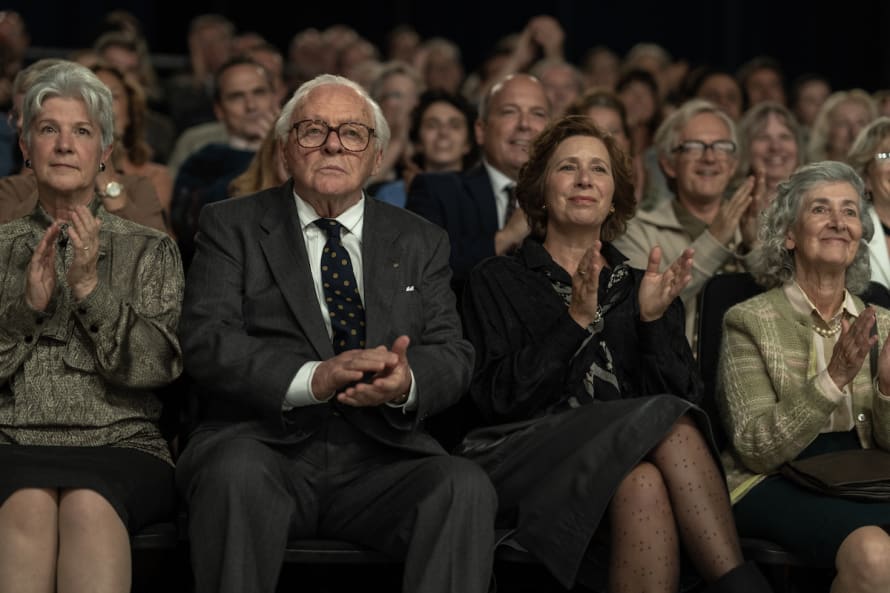The story of Sir Nicholas Winton and the Kindertransport, as it become known, has been put to celluloid a handful of times, including the Academy Award-winning documentary Into the Arms of Strangers: Stories of the Kindertransport by Mark Jonathan Harris. For his directorial debut, filmmaker James Hawes dramatizes the Kindertransport operation in One Life, a retelling that only scratches the surface.
For all the cinematic treatment the story has been given, by all accounts Winton never sought so much as a thank-you for his work leading up to the Second World War. It wasn't until the late '80s, when Winton passed on a scrapbook he had compiled documenting his and his colleagues' efforts to a Holocaust researcher, that Winton's extraordinary exercise in compassion came to light.
Working in London and nearing 30 years of age, Winton organized the evacuation of Czechoslovakian children into Britain as refugees between 1938 and 1939 amidst Hitler's growing hold on Eastern Europe. The last group of children scheduled to leave Prague on September 1, 1939, unfortunately never left the station, as the Nazis invaded Poland and WWII officially began. All told, because of Winton's persistence and determination, nearly 700 children were saved.
Winton was featured twice on a BBC show called That's Life! in 1988, and through the programme, he was reunited with those children (and their children and grandchildren). For his humanitarian endeavours, Winton was knighted by Queen Elizabeth II in 2003 and awarded the Order of the White Lion (First Class) in 2014, the highest honour given by the Czech Republic. Winton passed away in 2015 at the age of 106, but his story lives on in large part due to a clip from That's Life! showing Winton realizing the audience surrounding him are those kids, which continues to make its rounds on social media.
Inherently, Winton's story — especially in the final moments of the film, when the That's Life! segments are recreated — carries an emotional weight. Almost 100 years removed from the war, audiences still intrinsically understand the power of the Kindertransport, especially given the current state of world affairs.
Unfortunately, though, One Life seems to rest on this assumption to carry the film, as opposed to taking a more in-depth look into the operation or the effect it had on the children to drive the movie forward.
Hawes's film, with a screenplay by Lucinda Coxon and Nick Drake, flips between 1988 as an elderly Winton (played by Anthony Hopkins) cleans up his home at the urging of his wife (Lena Olin), and 1938–1939 when the actual evacuations take place (with Johnny Flynn playing young Winton).
In the past, a cursory look shows how the evacuation occurred, from Winton navigating the administrative whims of British bureaucracy in securing visas to seeing the departure and arrival of the children in Prague and London. In the movie's present, we see Winton bustle around his home living an unassuming pensioner's life, clearing the clutter of years gone by. We're transported from moment to moment without much rhythm or poetry, resulting in a lack of affecting heft beyond us knowing that what is happening on screen is emotional.
Importantly, though, the significant contribution of Winton's mother (Helena Bonham Carter) and colleagues, Doreen (Romola Garai) and Trevor (Alex Sharp), are also highlighted in the film – a welcome inclusion into a story which tends to only focus on Winton. Doreen and Trevor are the two who were on the ground in Prague and accompanied the children on those train rides, making their appearance here a revelation.
Undeniably, One Life will leave audiences in tears. The impact Winton had on 669 children, and subsequently the families they created and communities they contributed to, is unfathomable. Winton's selflessness serves as the highest example of doing the right thing in the face of immense pressure to look the other way. It's a story worth telling and re-telling — and also one worthy of a more comprehensive treatment than One Life.
